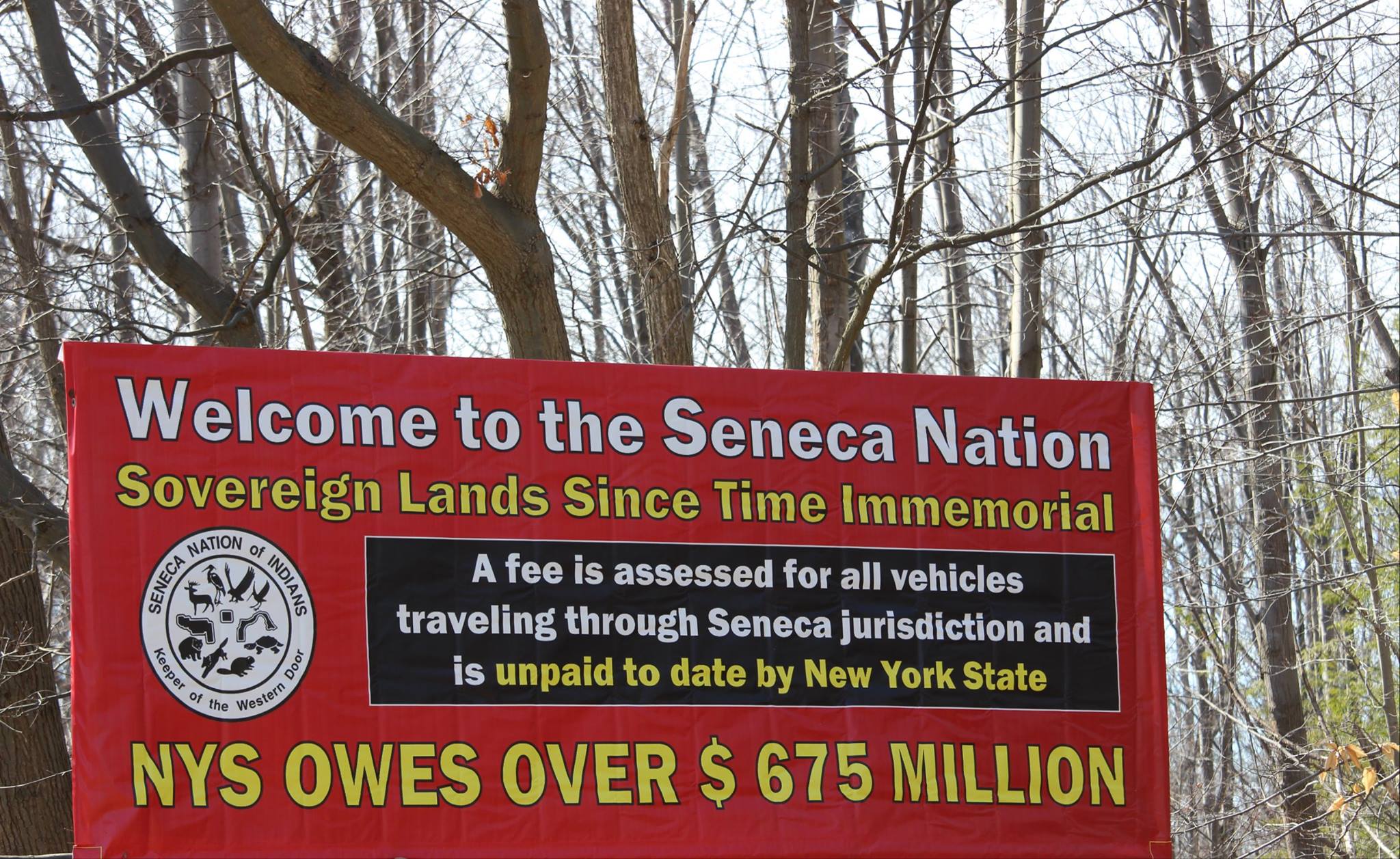
- Details
- By Native News Online Staff
The Seneca Nation of Indians won a significant victory over the State of New York in federal Court on Thursday.
The U.S. Court of Appeals for the Second Circuit ruled in favor of Seneca Nation when it rejected the State of New York’s attempt to dismiss a lawsuit filed by the Tribe in 2018. The lawsuit alleged ongoing violations of federal law related to the continued occupation of the New York State Thruway on the Nation’s Cattaraugus Territory.
At issue is a three-mile stretch of highway on I-90 that goes through the Seneca Reservation, which is about 30 miles south of Buffalo, New York.
The Court’s decision upholds a 2020 United States District Court decision that denied the State’s motion to dismiss the lawsuit.
After the Court’s ruling was announced, Seneca Nation President Rickey Armstrong Sr. issued the following statement: "After fighting New York's overreaching actions for decades, on the Thruway and other issues, this is an important victory. Our arguments on behalf of our people deserve to be heard in court. The Thruway is a 300-acre scar on our Cattaraugus Territory that New York State inflicted on our people without proper authorization from the Department of Interior or in compliance with the promises made to us by treaty. We intend to make sure that State officials finally comply with federal law for this invasion of our land."
Tribal leaders contend the basis for the case originated in 1954 when the Seneca Nation was pressured to grant an easement for a thruway to be constructed over about 300 acres of its Cattaraugus Reservation, which it has always owned and occupied as a federal Indian Reservation.
Land easements on Indian Reservations require federal approval to be deemed valid, but New York State did not take action to get approval from the U.S. Department of the Interior to construct the thruway at the time.
The current case dates back to 2018. The Tribe wants the New York Thruway Authority to seek a valid easement so that the Tribe can be compensated for motorists who drive on the portion of the freeway that goes through tribal land.
The Thruway Authority currently operates a toll station on tribal land and the Tribe is seeking to have the station closed.
More Stories Like This
Indian Gaming Association Condemns CFTC Over Prediction Markets, Warns of Threat to Tribal SovereigntyCommittee Advances 20% Increase to Navajo Child Support Guidelines
Navajo Committee Advances $84M Transportation Improvement Plan
NCAI Passes Two Emergency Resolutions on Immigration Enforcement Activities
Chickasaw Lighthorse Police Officer named Indian Country Law Enforcement Officer of the Year
Help us defend tribal sovereignty.
At Native News Online, our mission is rooted in telling the stories that strengthen sovereignty and uplift Indigenous voices — not just at year’s end, but every single day.
Because of your generosity last year, we were able to keep our reporters on the ground in tribal communities, at national gatherings and in the halls of Congress — covering the issues that matter most to Indian Country: sovereignty, culture, education, health and economic opportunity.
That support sustained us through a tough year in 2025. Now, as we look to the year ahead, we need your help right now to ensure warrior journalism remains strong — reporting that defends tribal sovereignty, amplifies Native truth, and holds power accountable.
 The stakes couldn't be higher. Your support keeps Native voices heard, Native stories told and Native sovereignty defended.
The stakes couldn't be higher. Your support keeps Native voices heard, Native stories told and Native sovereignty defended.
Stand with Warrior Journalism today.
Levi Rickert (Potawatomi), Editor & Publisher


